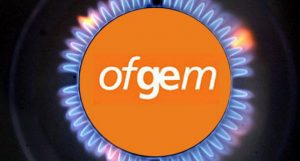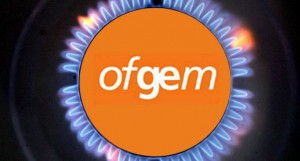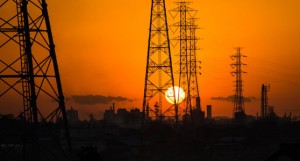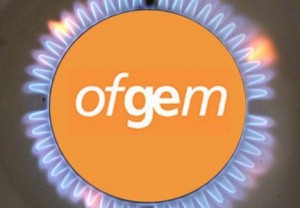 Following an investigation E.ON has agreed to pay £12m to vulnerable customers, after Ofgem found it had broken energy sales rules. E.ON has also committed to compensating any customer that it missold to, including automatic payments to some vulnerable customers.
Following an investigation E.ON has agreed to pay £12m to vulnerable customers, after Ofgem found it had broken energy sales rules. E.ON has also committed to compensating any customer that it missold to, including automatic payments to some vulnerable customers.
Read more from Ofgem here.
The agreed redress package reflects the harm caused by E.ON’s extensive poor sales practices carried out between June 2010 and December 2013.
As part of this package E.ON has agreed to:
•Pay around £35 to 333,000 of their customers who are normally recipients of the Warm Home Discount. This redress package will benefit pensioners, disabled and low income families
•Additionally, make automatic payments to some vulnerable customers who may have been affected by E.ON’s poor sales practices
•Set up a dedicated hotline 0800 0568 497 and compensate all consumers that it missold to
•Write to around 465,000 customers it has identified through its redress work, informing them of how to get in touch to find out whether they were missold to.
 Ofgem’s consultation on proposals to improve outcomes for prepayment customers ends 25 February 2016.
Ofgem’s consultation on proposals to improve outcomes for prepayment customers ends 25 February 2016. On 17 December 2015, Ofgem published its final proposals for the Priority Services Register, considered integral to its consumer vulnerability strategy. The aim is to ensure that existing services relating to safety, access and communication in the energy market meet the needs of consumers in vulnerable situations.
On 17 December 2015, Ofgem published its final proposals for the Priority Services Register, considered integral to its consumer vulnerability strategy. The aim is to ensure that existing services relating to safety, access and communication in the energy market meet the needs of consumers in vulnerable situations. Citizens Advice has published new research on energy tariff options for consumers in vulnerable situations which aims to provide researchers, policy makers and energy market stakeholders with a better understanding of the possible options to ensure that disengaged vulnerable consumers are not penalised by higher tariffs. The research was carried out by the Centre for Sustainable Energy. Read more
Citizens Advice has published new research on energy tariff options for consumers in vulnerable situations which aims to provide researchers, policy makers and energy market stakeholders with a better understanding of the possible options to ensure that disengaged vulnerable consumers are not penalised by higher tariffs. The research was carried out by the Centre for Sustainable Energy. Read more  Ofgem is reviewing its work on priority services.
Ofgem is reviewing its work on priority services. Ofgem has analysed differences in price between different payment methods used by consumers following an information request to suppliers in February 2014. It has found that the gap between prepayment and direct debit has narrowed since 2009. Read more
Ofgem has analysed differences in price between different payment methods used by consumers following an information request to suppliers in February 2014. It has found that the gap between prepayment and direct debit has narrowed since 2009. Read more  Following an investigation E.ON has agreed to pay £12m to vulnerable customers, after Ofgem found it had broken energy sales rules. E.ON has also committed to compensating any customer that it missold to, including automatic payments to some vulnerable customers.
Following an investigation E.ON has agreed to pay £12m to vulnerable customers, after Ofgem found it had broken energy sales rules. E.ON has also committed to compensating any customer that it missold to, including automatic payments to some vulnerable customers. for more. The tariff modelling undertaken by CSE demonstrates the potential impacts of a ToU tariff on different consumers’ bills. It shows that the types of customers that benefit from ToU tariffs will depend on their current usage as well as how they respond and the types of ToU tariffs on offer.
for more. The tariff modelling undertaken by CSE demonstrates the potential impacts of a ToU tariff on different consumers’ bills. It shows that the types of customers that benefit from ToU tariffs will depend on their current usage as well as how they respond and the types of ToU tariffs on offer. Today DECC published the consultation document on the future of the Energy Company Obligation (ECO). The consultation will run from 5th March to the 16th April.
Today DECC published the consultation document on the future of the Energy Company Obligation (ECO). The consultation will run from 5th March to the 16th April. Low levels of consumer switching characterise many essential services markets (think current accounts or energy suppliers) and mean that competition alone isn’t sufficient to drive improvements.
Low levels of consumer switching characterise many essential services markets (think current accounts or energy suppliers) and mean that competition alone isn’t sufficient to drive improvements.  As of 2nd Jan Ofgem has banned suppliers from offering complex tariffs. The reforms also mean that once a consumer has decided how they want to pay for energy they will have just four core tariffs to choose from for gas and four for electricity, from each supplier. Read more from Ofgem
As of 2nd Jan Ofgem has banned suppliers from offering complex tariffs. The reforms also mean that once a consumer has decided how they want to pay for energy they will have just four core tariffs to choose from for gas and four for electricity, from each supplier. Read more from Ofgem